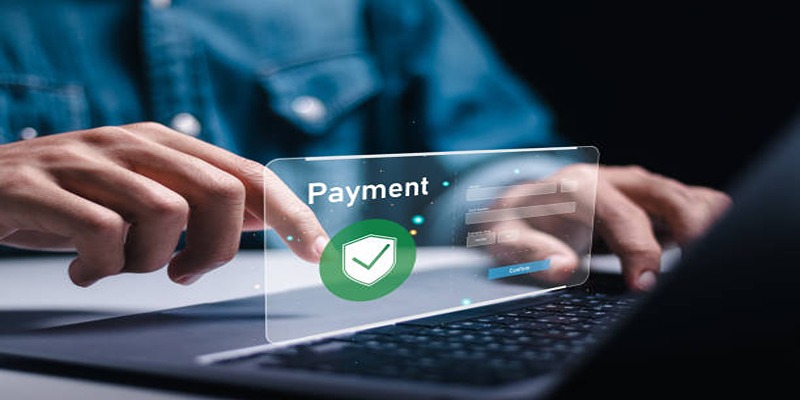When it comes to online payments, keeping credit card details safe is very important. Businesses must take steps to protect customer information. This guide shares easy-to-follow best practices to ensure secure payment processing. By following these tips, businesses can build customer trust, prevent data breaches, and stay compliant with security standards. A secure system protects both the business and its customers in the digital world.
Use of Secure Payment Gateways

One of the most important aspects of secure online credit card payment processing is the use of a secure payment gateway. This is essentially a service that securely transfers sensitive data between the customer's bank and the merchant's website. Payment gateways offer advanced encryption techniques to safeguard information during transactions, making them an essential tool for businesses processing payments online.
Implementing SSL Certificates
SSL (Secure Sockets Layer) certificates represent the core security element which protects online transactions through encrypted connection lines. Website users benefit from an SSL certificate because it establishes an encrypted link which protects sensitive data such as credit card details from interception. Web pages with SSL-enabled security show the "https://" prefix along with a padlock in the browser address bar which serves as visible security indicators for customers.
All businesses should prioritize having SSL certificates which serve both as standards for website security protection and trust generators for clients. Keeping SSL certificates updated is vital to sustain a protected system environment equally as important as their initial maintenance.
Compliance with PCI DSS Standards
Complying with these standards helps businesses avoid hefty fines, legal consequences and build trust with customers. Businesses should regularly review and update their payment processes and systems to meet PCI DSS requirements. This includes implementing strong firewalls, using encryption techniques for data storage, and restricting access to customer information only on a need-to-know basis.
Regular Security Updates and Monitoring
To keep up with evolving cyber threats, businesses must regularly update and monitor their payment systems. This includes installing security patches, updating anti-virus software, and implementing intrusion detection systems to identify potential vulnerabilities.
Additionally, monitoring for any suspicious activity on the website or payment gateway is crucial for detecting data breaches early on. Businesses should have a dedicated team responsible for monitoring and responding to any security threats promptly.
Tokenization and Encryption Techniques
Tokenization and encryption techniques are two highly effective methods of securing credit card data during online transactions. Tokenization replaces sensitive data with a randomly generated code, making it difficult for hackers to access the original information if there is a breach. Encryption uses complex algorithms to scramble data, making it unreadable without the correct decryption key.
Implementing these techniques can significantly reduce the risk of a data breach and provide an extra layer of security for customers' credit card information.
Customer Authentication Methods
Businesses should also consider implementing strong customer authentication methods to ensure the security of online credit card transactions. This can include multi-factor authentication, where customers are required to provide additional information or use biometric identifiers such as fingerprint or facial recognition before completing a payment.
These methods add an extra layer of security and prevent unauthorized access to customers' credit card details by third parties.
Employee Training on Security Protocols
Human error is often a significant factor in data breaches. Therefore, it's crucial for businesses to conduct regular training sessions for their employees on security protocols and best practices for handling sensitive data. Employees must understand the importance of safeguarding customer information and how to identify potential threats.
Regular training and refreshers can help prevent accidental data breaches and ensure all employees are up-to-date on the latest security protocols.
Backup and Incident Response Plans
Despite implementing all necessary precautions, data breaches can still occur. That's why businesses must have a backup and incident response plan in place to minimize the impact of a breach.
Backing up critical data regularly and storing it securely offsite can help mitigate the effects of a breach. An incident response plan should also outline steps to contain and address any security incidents promptly, preventing further damage or loss of sensitive information.
Secure Data Storage
Storing sensitive customer data securely is crucial for preventing data breaches. Businesses must use encryption techniques when storing information such as credit card numbers to make it difficult for hackers to access this data even if they manage to breach the system. Additionally, businesses should have backup systems in place in case of any data loss or corruption.
How to Build Trust with Customers

Aside from implementing robust security measures, businesses must also focus on building trust with their customers when it comes to online credit card payments. Here are a few ways businesses can do this:
- Be Transparent: Clearly communicate your business's privacy policies and how you handle customer data.
- Use Trusted Payment Processors: Partner with reputable payment processors that have a solid track record of secure transactions.
- Display Security Seals: Displaying security seals on your website shows customers that you prioritize their security and follow industry standards.
- Provide Excellent Customer Service: Promptly addressing any concerns or issues related to payment processing can go a long way in building trust with customers.
Conclusion
In today's digital world, secure credit card payment processing is vital for businesses to protect their customers' sensitive information and build trust. By implementing the above measures and continuously monitoring and updating their security protocols, businesses can ensure a safe online shopping experience for their customers and avoid potential consequences of data breaches. It is crucial for businesses to always prioritize the security of customer data in the age of technology.












